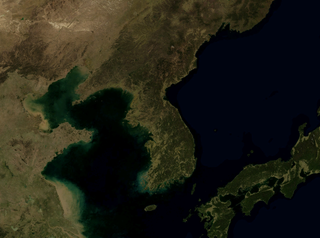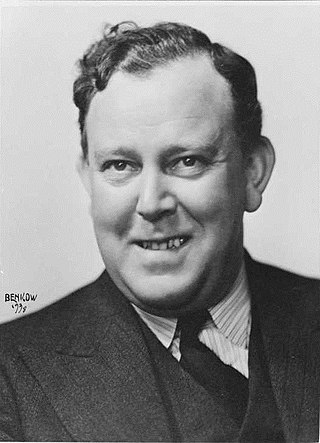
The United Nations Security Council (UNSC) is one of the six principal organs of the United Nations (UN) and is charged with ensuring international peace and security, recommending the admission of new UN members to the General Assembly, and approving any changes to the UN Charter. Its powers as outlined in the United Nations Charter include establishing peacekeeping operations, enacting international sanctions, and authorizing military action. The UNSC is the only UN body with the authority to issue binding resolutions on member states.

The member states of the United Nations comprise 193 sovereign states. The United Nations (UN) is the world's largest intergovernmental organization. All members have equal representation in the UN General Assembly.
A United Nations General Assembly resolution is a decision or declaration voted on by all member states of the United Nations in the General Assembly.
China is one of the charter members of the United Nations and is one of five permanent members of its Security Council.
A war of aggression, sometimes also war of conquest, is a military conflict waged without the justification of self-defense, usually for territorial gain and subjugation.

The Russian Federation succeeded to the Soviet Union's seat, including its permanent membership on the Security Council in the United Nations after the 1991 dissolution of the Soviet Union, which originally co-founded the UN in 1945. The succession was supported by the USSR's former members and was not objected to by the UN membership; Russia accounted for more than 75% of the Soviet Union's economy, the majority of its population and 75% of its land mass; in addition, the history of the Soviet Union began in Russia with the October Revolution in 1917 in Petrograd. If there was to be a successor to the Soviet seat on the Security Council among the former Soviet republics, these factors made Russia seem a logical choice. Nonetheless, due to the rather inflexible wording of the UN Charter and its lack of provision for succession, the succession's technical legality has been questioned by some international lawyers.

The United Nations Security Council veto power is the power of the five permanent members of the UN Security Council to veto any "substantive" resolution. They also happen to be the nuclear-weapon states (NWS) under the terms of the Treaty on the Non-Proliferation of Nuclear Weapons. However, a permanent member's abstention or absence does not prevent a draft resolution from being adopted. This veto power does not apply to "procedural" votes, as determined by the permanent members themselves. A permanent member can also block the selection of a Secretary-General, although a formal veto is unnecessary since the vote is taken behind closed doors.
United Nations General Assembly (UNGA) resolution 377 A, the "Uniting for Peace" resolution, states that in any cases where the Security Council, because of a lack of unanimity among its five permanent members (P5), fails to act as required to maintain international security and peace, the General Assembly shall consider the matter immediately and may issue appropriate recommendations to UN members for collective measures, including the use of armed force when necessary, in order to maintain or restore international security and peace. It was adopted 3 November 1950, after fourteen days of Assembly discussions, by a vote of 52 to 5, with 2 abstentions. The resolution was designed to provide the UN with an alternative avenue for action when at least one P5 member uses its veto to obstruct the Security Council from carrying out its functions mandated by the UN Charter.

United Nations Command is the multinational military force established to support the Republic of Korea during and after the Korean War. It was the first international unified command in history, and the first attempt at collective security pursuant to the Charter of the United Nations.

United Nations Security Council Resolution 82 was a measure adopted by the United Nations Security Council (UNSC) on June 25, 1950. The resolution condemned the "armed attack on the Republic of Korea by forces from North Korea", while calling for "the immediate cessation of hostilities" and for "the authorities in North Korea to withdraw forthwith their armed forces to the 38th parallel". The measure was adopted by a vote of 9 support, none opposed, and one abstention. The resolution passed since the Soviet Union was boycotting the UN for recognising Republic of China as China.
Events in the year 1951 in the People's Republic of China.
Organisation of the Islamic Conference of Foreign Ministers Resolution 10/37, titled "The aggression of the Republic of Armenia against the Republic of Azerbaijan", is a set of three Organisation of the Islamic Conference resolutions on Nagorno-Karabakh conflict adopted at the 37th annual session of Foreign Ministers of OIC member states on May 18–20, 2010 held in Dushanbe, Tajikistan. The session was attended by 80 delegations from member states, observer states and international organizations.

The Republic of Korea and the Democratic People's Republic of Korea were simultaneously admitted to the United Nations (UN) in 1991. On 8 August 1991, the UN Security Council passed United Nations Security Council Resolution 702, recommending both states to the UN General Assembly for membership. On 17 September 1991, the General Assembly admitted both countries under Resolution 46/1.

The Spanish question was the set of geopolitical and diplomatic circumstances that marked the relationship between Spain and the United Nations between 1945 and 1955, centred on the UN's refusal to admit Spain to the organization due to Francoist Spain's sympathy for the Axis powers, defeated in World War II.
Ukraine was one of the founding members of the United Nations when it joined in 1945 as the Ukrainian Soviet Socialist Republic; along with the Byelorussian Soviet Socialist Republic, Ukraine signed the United Nations Charter when it was part of the Soviet Union. After the dissolution of the Soviet Union in 1991, the newly independent Ukraine retained its seat.

The United Nations Secretary-General selection of 1950 took place as the Cold War turned hot in the Korean War. The Soviet Union vetoed Trygvie Lie's second term and offered to vote for any other candidate. However, the United States insisted that Lie had to continue in office as Secretary-General, pressuring its allies to abstain on all other candidates. When a Latin American candidate appeared to have enough votes to win, the United States threatened to use its veto for the first time. After a second round of voting with no candidates receiving the required majority, the Security Council informed the General Assembly that it had been unable to agree on a recommendation. The General Assembly then extended Lie's term for three years.

The United Nations General Assembly Resolution 500 was approved on May 18, 1951, recommending a trade embargo on the People’s Republic of China and North Korea, in response to the intervention of Chinese troops in Korean War.

The eleventh emergency special session of the United Nations General Assembly opened on 28 February 2022 at the United Nations headquarters. It addresses the Russian invasion of Ukraine. Maldivian politician Abdulla Shahid served as President of the body during this time.

United Nations General Assembly Resolution ES‑11/1 is a resolution of the eleventh emergency special session of the United Nations General Assembly, adopted on 2 March 2022. It deplored Russia's invasion of Ukraine and demanded a full withdrawal of Russian forces and a reversal of its decision to recognise the self-declared People's Republics of Donetsk and Luhansk.

United Nations General Assembly Resolution ES‑11/2 is the second resolution of the eleventh emergency special session of the United Nations General Assembly, adopted on 24 March 2022, following Resolution ES-11/1 which was adopted on 2 March 2022. Resolution ES‑11/2 reaffirmed the UN's former commitments and obligations under its Charter, and reiterated its demand that Russia withdraw from Ukraine's recognized sovereign territory; it also deplored, expressed grave concern over and condemned attacks on civilian populations and infrastructure. Fourteen principles were agreed.















